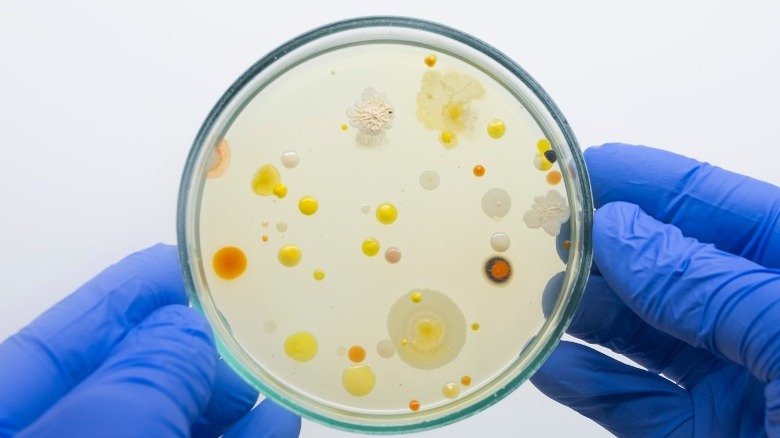Study Finds A New Drug Could Be Effective In Treating Many Drug-Resistant Bacteria
When the body becomes overrun by germs, it is called an infection (per National Cancer Institute). Infections can grow and spread throughout the body, leading to health issues. While a strong immune system may be able to handle an infection, sometimes the body requires some additional help, which often comes in the form of antibiotics (via Medical News Today). Antibiotics are predominantly a type of prescription medicine that can either prevent bacterial growth or fight them off in the event of a bacterial infection. Notably, antibiotics will not work against viruses like the common cold or flu.
Antibiotics have become very popular — in the U.S. alone, more than 150 million prescriptions are written every year (per WebMD). However, National Health Service says that this overuse of antibiotics had led to bacterial adaptation to the medications, creating an effect known as antibiotic resistance, with bacteria commonly called "superbugs." According to Healthline, the bacteria that remain after an antibiotic takes its course are typically resistant to the medication. In short, the antibiotic does not work on these well-adapted bacteria.
Scientists have been working to solve the problem of antibiotic resistance, and they recently made a discovery that may help. Here's what we know about it so far.
The fight against superbugs
According to the Centers for Disease Control and Prevention (CDC), nearly 3 million cases of antibiotic-resistant bacterial and fungal infections occur annually in the U.S. These infections kill around 35,000 Americans every year. Moreover, Healthline says that antibiotic resistance has doubled in the last 20 years.
But there's good news on this front, as researchers may have discovered a new drug that works on antibiotic-resistant bacteria. A 2022 study on mice, published in the journal ACS Central Science, discovered a possible solution to a notorious and deadly antibiotic-resistant microbe known as gram-negative bacteria. Gram-negative pathogens are well adapted to antibiotics — their durable cell walls keep medicine out, and when any antibiotics do make their way into the bacteria, they get pumped out. The authors of the study note that "This situation has led to increased mortality, with these Gram-negative bacteria representing four of the top six pathogens causing antibiotic-associated deaths, and some studies showing that 75% of deaths from drug-resistant pathogens are now caused by Gram-negative bacteria."
The new drug tested in the study, called fabimycin, helped infected mice lower their bacteria count to pre-infection levels (per Healthline). The drug performed better than standard antibiotics. Further, fabimycin shows promise against 300 other types of antibiotic-resistant bacteria.
As the study authors noted in ACS Central Science, "Fabimycin has translational promise, and its discovery provides additional evidence that antibiotics can be systematically modified to accumulate in Gram-negative bacteria and kill these problematic pathogens."


